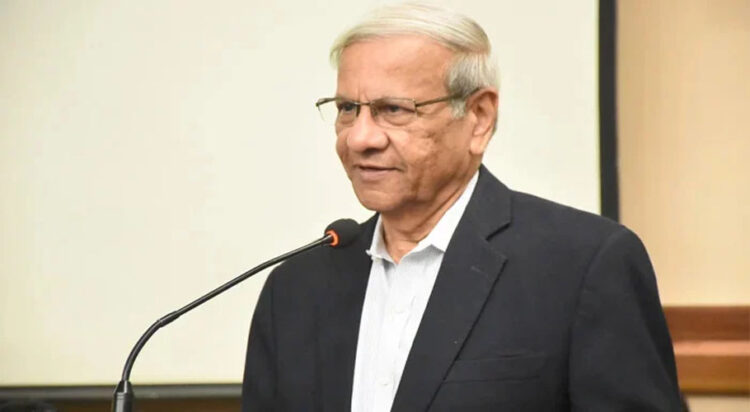Renowned economist Dr. Kaiser Bengali resigned on Saturday from three key government committees focused on reducing expenditures and institutional rightsizing. He warned that Pakistan’s economy is “on a ventilator due to mounting debts and on the path to destruction.” Geo News reported.
Bengali, who was part of committees established by the Pakistan Muslim League-Nawaz (PML-N) led coalition government, was involved in efforts to address the economic crisis following the 2024 general elections. He submitted his resignation to Finance Minister Senator Muhammad Aurangzeb and Cabinet Division Secretary Kamran Ali Afzal.
His resignation coincides with the government’s claims of working hard to tackle the economic crisis through austerity measures, rightsizing, and privatization of inefficient state-owned entities, as well as seeking a new bailout package from the International Monetary Fund (IMF).
In his statement, Bengali commended the government for its efforts to cut spending and described the three committees as vital for reducing government expenditure. He noted that these committees had recommended shutting down 17 divisions and 50 departments after reviewing 70 government institutions and 17 corporations.
Bengali criticized the government for not following these recommendations. He alleged that instead of reducing expenses by cutting high-ranking officers, the government is terminating junior employees from Grades 1 to 16 while protecting Grade 17 to 22 officers. According to him, removing these higher-ranked officers could save Rs30 billion annually.
His statement raised doubts about the government’s recent measures, such as restructuring utility stores, closing the Public Works Department (PWD), and privatizing Pakistan International Airlines (PIA). Additionally, he pointed out that the federal cabinet was recently informed about the merger of 82 government bodies into 40 institutions based on the committees’ recommendations.
Bengali, who holds a master’s degree in economics from Boston University and a PhD from the University of Karachi, warned that the economy is “on the path to destruction” due to increasing debt. He highlighted the dire situation faced by ordinary people, who are struggling to manage their household budgets.
He also criticized the PML-N government’s economic policies, suggesting that global institutions, including the IMF, have refused to provide loans to Pakistan. This statement follows reports that Pakistan is not on the agenda for the IMF Executive Board’s upcoming meeting scheduled for September 4.
The absence of Pakistan’s loan approval from the IMF’s agenda is a significant concern, as securing the loan is crucial for stabilizing the country’s economy. However, the government remains hopeful about obtaining a $7 billion bailout package from the IMF next month. Finance Minister Aurangzeb expressed confidence that the IMF would approve the agreement, which was reached in July but is subject to final approval from the IMF Executive Board and confirmation of necessary financing from Pakistan’s development and bilateral partners.
Pakistan is also in discussions with Saudi Arabia, the United Arab Emirates, and China to secure the financing needed under the IMF program. Finance Minister Aurangzeb mentioned these efforts after a recent trip to China aimed at seeking energy sector debt relief. Historically, loans and rollovers from Pakistan’s allies, along with IMF financing, have been crucial in meeting the country’s external financial needs.


































